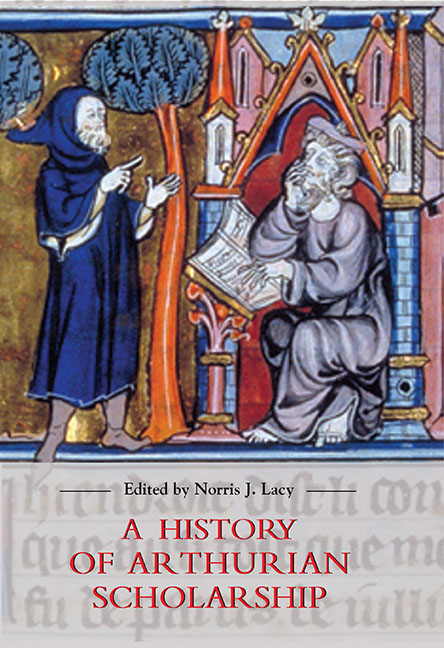Hispanic Arthurian Literature
Published online by Cambridge University Press: 18 March 2023
Summary
Hispanic Arthurian literature originated through a process of hybridization. Iberian allusions to the legends of King Arthur have been dated as early as 1170, and include evidence that legal witnesses bearing Arthurian names could have been living on the peninsula when Geoffrey of Monmouth completed his Historia regum Britanniae (c. 1136). Yet in the most standard view Hispanic Arthurian literature begins with early fourteenth-century Portuguese romance translations, taken directly from the thirteenth-century French cycles. As a result of these factors scholars have debated such issues as the comparatively late appearance of Arthurian literature on the Iberian Peninsula and the proper consideration of textual distinctions in defining it as Hispanic. It is commonly agreed that Iberian reworkings merit recognition within the broader body of medieval Arthurian retellings and that both translations and refundiciones are invaluable for their preservation of otherwise lost French material.
The very diverse underpinnings of texts strongly influenced by Hispanic and Arthurian traditions can be perceived when conflicts between their respective features create dissonance in the crossbred end products. Cervantes's Don Quixote illustrates such an uneasy coexistence by both idealizing and denouncing the books of chivalry at its narrative, generic and comedic core. And although the less obviously Spanish feature of anachronism stands out among the novel's humorous incongruities, the clash between otherworld fantasy and Castilian rusticity is hardly less noticeable.
Such ambiguity is as basic to Hispanic Arthurian scholarship as to the related objects of study. Because the relationships between French and Hispanic texts are essential, the work of French medievalists can be vital to Hispanic Arthurian scholarship and vice versa. And in some cases readers will find that complex textual associations and other kinds of difficult questions have generated chicken-and-egg style enigmas.
Hispanists contributing to Arthurian studies may not usually be categorized as Arthurians, because the Arthurian aspect of their work can be indirect, inadvertent and/or of limited quantity. What is more, the deep-seated cultural differences underlying the literary ones affect many facets of the relevant scholarship. Two regular sources of such disparity, arising from Spain's uncommon religious dynamic, are the endurance of disproportionately medieval attitudes on the peninsula well into the Renaissance and the opposition of Eastern and Western values resulting from the significant Iberian Islamic presence.
- Type
- Chapter
- Information
- A History of Arthurian Scholarship , pp. 179 - 189Publisher: Boydell & BrewerPrint publication year: 2006



